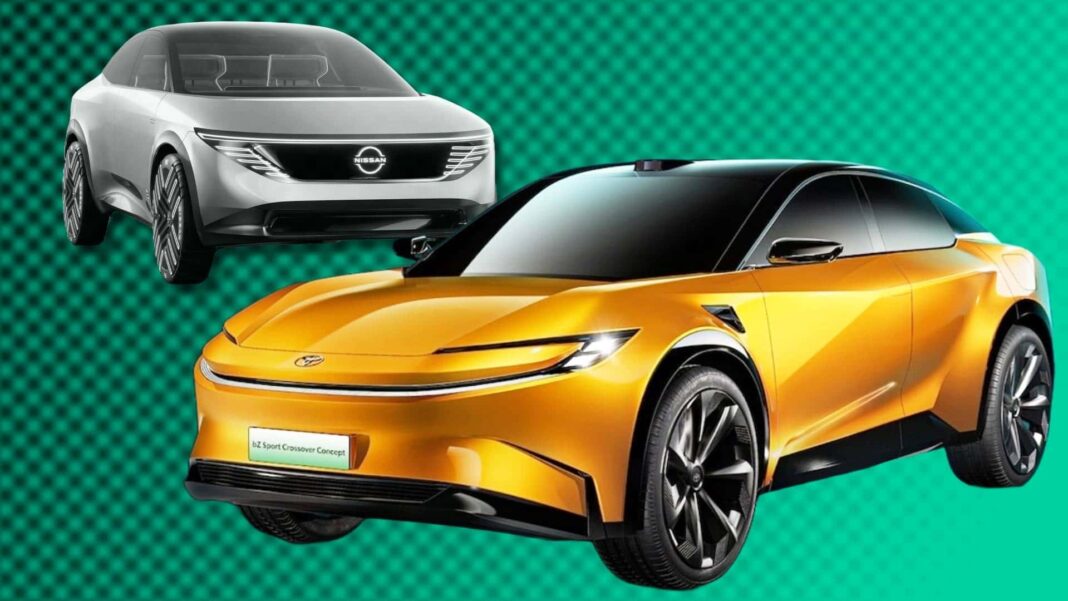As the automotive industry braces for an uncertain future, consolidation of big players who were once vicious competitors is all but inevitable. Yet before a battered and diminished Nissan sought out a partner to merge with, its biggest historical competitor Toyota was never on the menu.
Speaking at CES 2025 in Las Vegas today, Toyota Chairman Akio Toyoda addressed the looming consolidation facing two huge parts of the Japanese auto industry: Honda and Nissan. But he confirmed that his company wasn’t involved in such talks.
“[Nissan] did not approach Toyota about any mergers,” Toyoda said through an interpreter. “But even if they had considered that, it would definitely be violating anti-monopoly laws. So maybe they might have considered it, but decided not to because of that.”
Toyoda implied that the Japanese government—and perhaps even other governments in places where these global companies operate—might have balked at a union between two direct competitors who, for a long time, were similar in size and scope. Instead, Nissan and Honda are set to begin merger talks this year, with a mutual goal of combining by late summer 2026.
Toyoda came to CES to promote Woven City, the automaker’s upcoming live-in startup incubator situated at the base of Mount Fuji in Japan. But the chairman, who served for more than a decade as the CEO of the company his grandfather founded, also weighed in on the consolidation wave facing the Japanese auto industry amid the push toward electric and software-defined vehicles while China’s car sector races ahead.

Photo by: InsideEVs
Toyota Woven City Briefing, CES 2025
“If I knew what was going to happen from here, I think I’d become very rich by making some investments,” Toyoda joked. “But we are seeing an unclear future. We don’t know what will happen. It’s quite an interesting, challenging era to be in management.”
InsideEVs has requested a comment from Nissan. We will update this story if we get one.
Japan’s biggest automakers all find themselves in very different places as they go into 2025.
Toyota remains handsomely profitable and the world’s top car company by sales volume. But it’s far from immune to industry headwinds, especially where the rise of China’s auto industry is concerned. While it remains the dominant force in hybrid cars, Toyota is largely considered late to the game with fully electric cars, and it’s quickly losing market share in once-extremely profitable China. Toyota is also scrambling to catch up on the software front as more and more players seek to emulate Tesla, Rivian and the Chinese automakers for their ability to upgrade cars with new tech features over time and charge drivers for that privilege.

Photo by: Nissan
Honda Nissan Mitsubishi Partnership
Meanwhile, Honda is also making money and doing well in sales, but seems to be realizing it needs to catch up more quickly on the high-tech EV front—hence a series of announcements about new electric models and upcoming tech later this week at CES. But while Nissan was long Japan’s no. 2 automaker, it has sagged in sales and profits for years now, with executives warning last year that it probably only has 12-14 months to survive without a lifeline of some sort. That lifeline is expected to be Honda now in a planned union that will create the world’s third-largest automaker by volume. Mitsubishi is also in talks with the two and many industry-watchers believe it’s likely to join at some point as well.
Meanwhile, Toyota seems to be forging closer ties with a few smaller companies it has various partnerships with already: Subaru, Mazda and Suzuki. But Toyoda warned that the game isn’t about duking it out with other players for percentages of the same car market as it used to be. Now, it’s less about incremental change and more about total transformation.
“For Toyota, what I can say is that when we think about the car industry, probably in the past we were in competition between car companies about how we can grow volume,” he said. “But probably that competition, the nature of the competition, is changing. It’s 1736237524 more a competition about how the companies can change the vehicles themselves—to change the cars.”
As for the Nissan-Honda merger, Toyoda said he’s actually looking forward to what comes out of it—and how to compete against those cars.
“For me, it’s quite exciting, because I’m looking forward to [seeing] how they’re going to cooperate between each other and how they’re going to develop more competitive products,” Toyoda said. “If those kinds of exciting products, competitive products, come out [of this merger], I think it’s a good thing for the competition not only in Japan but for the world.”
Contact the author: [email protected]

